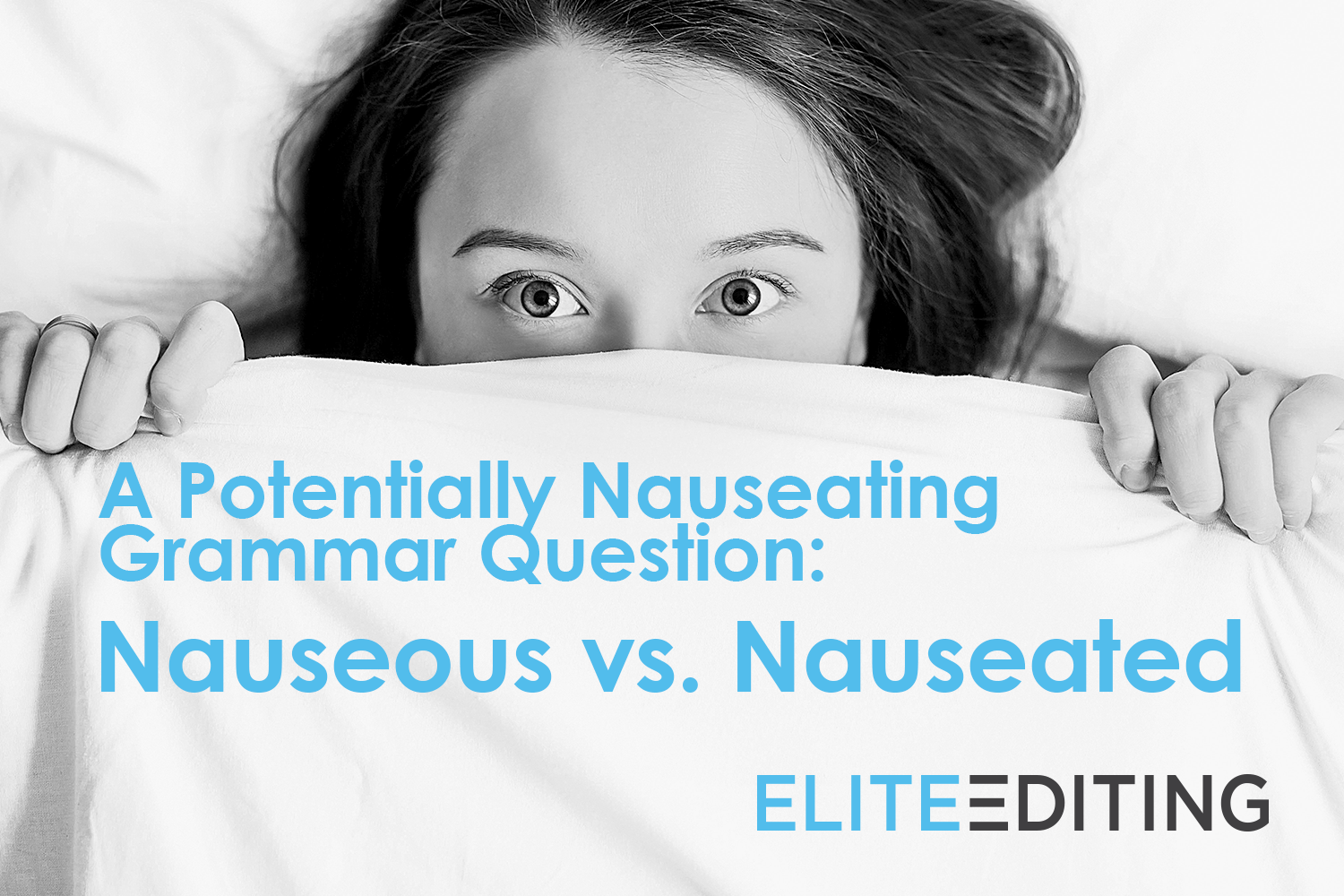
If you’re not feeling well, are you feeling nauseous or nauseated? The nauseous vs. nauseated issue is often confusing because of how each word’s use has changed since its humble beginnings. English is a living language, which means it’s always evolving. That’s a pretty cool thing, but it can sometimes add to the confusion because it’s hard to keep up with all the changes.
The History of Nauseous vs. Nauseated
See, back in the old days, the nauseous vs. nauseated debate was a little bit different. Nauseated was a way specifically to describe someone’s condition of feeling sick. If you were nauseated, you might have to stay in bed or worry about vomiting.
Nauseous, on the other hand, was used to describe something that causes you to become sick. For example:
- My nauseous airplane flight made me regret not bringing my airsickness pills.
- Jimmy never took out the trash—and that trash became as nauseous as the city dump.
If you use nauseous and nauseated in this older way, you will still be correct. However, things have gotten a little simpler, and it’s now also considered correct to use nauseous and nauseated interchangeably. Let’s get into that below.
Simplifying Nauseous vs. Nauseated
The good news about all this “living language” stuff is that, in the case of nauseous vs. nauseated, the changes have actually made things simpler. It is now perfectly fine to use both of these words in the same way: to refer to the condition of feeling sick. Check out a couple of examples below.
- After getting the flu, I felt nauseated day in and day out.
- Looking at the slice of moldy bread made me feel nauseous.
As you can see, the words can be used in exactly the same way. This is probably how you’ve heard them used, as most people have forgotten that they were once used in two different manners. In fact, even newspapers use nauseous and nauseated the same way nowadays, so you really don’t have to worry about mixing them up. That’s good news.
But wait, there’s more! You can sound extra smart if you use the original form of nauseous to impress teachers, professors, and friends’ parents with whom you want to score brownie points. For example:
- Excuse me, Mr. Matthew Mathteacher, but this test is nauseous. The questions are so difficult that they’re making me sick.
- Professor Fairman, can I get an extension on the take-home final exam? My roommate pranked me with a nauseous sack of old meat stuffed into my mattress, and I couldn’t focus.
- No, Mrs. Friendparent, it’s not my fault I broke the lamp. Your nasty, nauseous dog left poo on the floor, and I only knocked the lamp over because I slipped on the dog pile!
There you have it. Keep things simple by using nauseous and nauseated in the modern fashion, or get out of a jam by using them the old-fashioned way. The simpler method is actually more common nowadays, but hey, earning a few extra brownie points never hurt anyone!
If you liked this article, check out this post on “Entitled vs. Titled” and this one on “Aid vs. Aide.”







